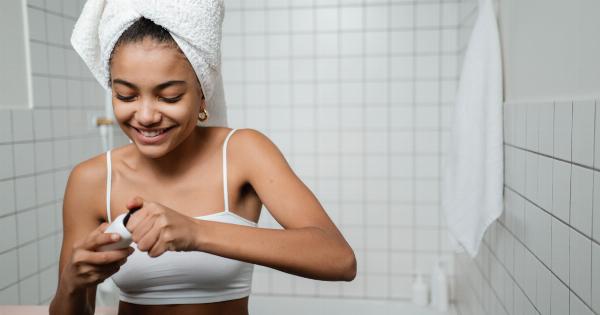As a woman, it can be overwhelming to keep up with the various health concerns that affect us. From sexually transmitted infections like herpes to our menstrual cycle and unwanted facial hair, there’s so much to consider.
That’s why we’ve put together this comprehensive guide that covers everything you need to know about herpes, periods, and mustache hair removal. Read on to learn more.
What is Herpes?
Herpes is a viral infection that is spread through skin-to-skin contact. There are two main types of herpes – HSV-1 and HSV-2. HSV-1 typically causes cold sores around the mouth, while HSV-2 causes genital herpes.
Both types of herpes can be transmitted through sexual contact, although it’s also possible to get herpes through non-sexual contact, such as kissing someone with a cold sore.
Symptoms of herpes can vary, but they typically include painful blisters or sores on or around the affected area. There is currently no cure for herpes, but antiviral medications can help to reduce the severity and frequency of outbreaks.
Living with Herpes
If you have herpes, it’s important to know that you’re not alone. Millions of people around the world have herpes, and it’s not a reflection of your worth as a person.
That being said, it can still be difficult to cope with the emotional and physical symptoms of herpes.
If you’re living with herpes, there are several things you can do to manage your symptoms and reduce the risk of infecting others. These include:.
- Taking antiviral medications as prescribed by your doctor
- Avoiding sexual contact during outbreaks
- Using condoms during sexual activity
- Practicing good hygiene, such as washing your hands frequently and keeping the affected area clean and dry
Understanding Your Periods
Menstruation is a natural process that occurs in women of reproductive age. Every month, the lining of the uterus thickens in preparation for a possible pregnancy.
If pregnancy doesn’t occur, the lining is shed through the vagina, resulting in a period.
Periods can vary in length and intensity, but they typically last between 2-7 days and occur every 21-35 days. It’s normal to experience some discomfort during your period, such as cramping, bloating, and mood swings.
However, if your periods are particularly heavy or painful, it’s important to talk to your doctor.
Taking Care of Yourself During Your Period
There are several things you can do to take care of yourself during your period. These include:.
- Using pads or tampons to manage menstrual flow
- Taking pain relievers to manage cramps and other symptoms
- Eating a healthy diet and staying hydrated
- Getting plenty of rest
It’s also important to practice good hygiene during your period. This includes changing your pads or tampons regularly, washing your hands frequently, and avoiding scented products that can irritate the delicate skin of the genital area.
Mustache Hair Removal
Many women experience unwanted facial hair, particularly around the upper lip or chin. While this is a common issue, it can be embarrassing and affect your self-confidence.
Fortunately, there are several methods of hair removal that can help you feel more comfortable and confident in your own skin.
Hair Removal Options
There are several methods of hair removal that you can try at home or in a salon. These include:.
- Shaving
- Waxing
- Threading
- Depilatory creams
- Laser hair removal
Each method has its own pros and cons, so it’s important to choose the one that best suits your needs and budget.
Caring for Your Skin After Hair Removal
Regardless of which method of hair removal you choose, it’s important to take care of your skin afterwards. This can help to prevent irritation, redness, and ingrown hairs. Some tips for caring for your skin after hair removal include:.
- Using a gentle, fragrance-free moisturizer to soothe the skin
- Avoiding tight clothing that can rub against the skin
- Avoiding sun exposure, as the skin may be more sensitive to UV rays for a few days after hair removal
Conclusion
As a woman, it’s important to take care of your physical and emotional health.
By understanding the risks and symptoms of herpes, knowing how to manage your periods, and finding a hair removal method that works for you, you can feel confident and comfortable in your own skin.































